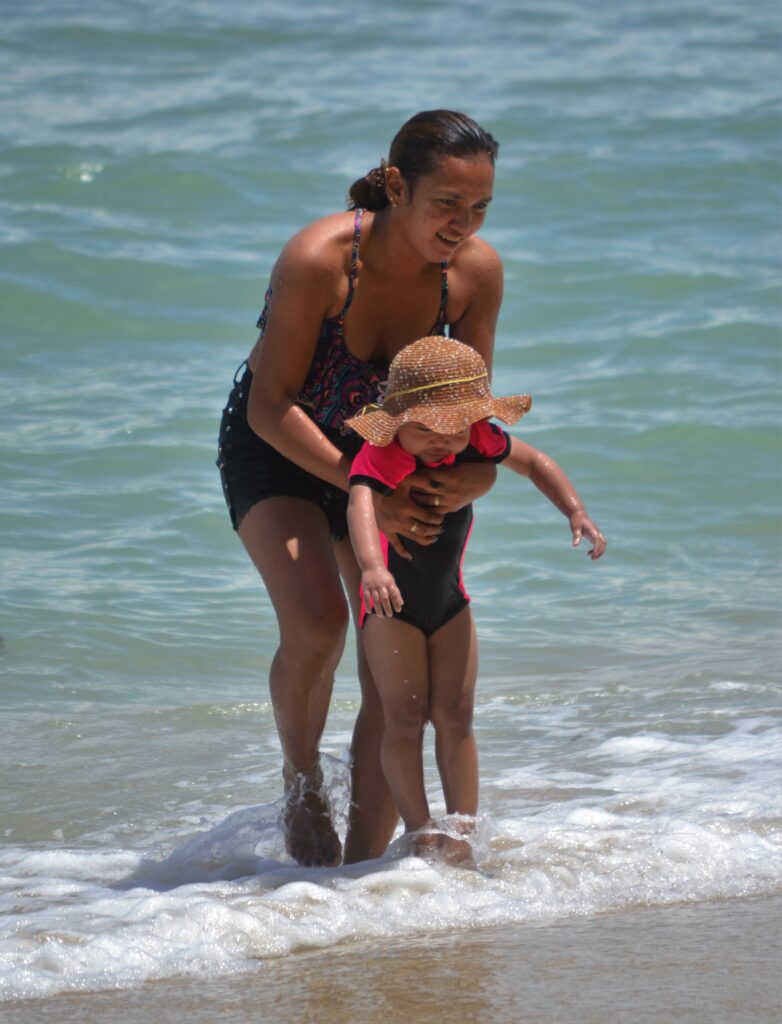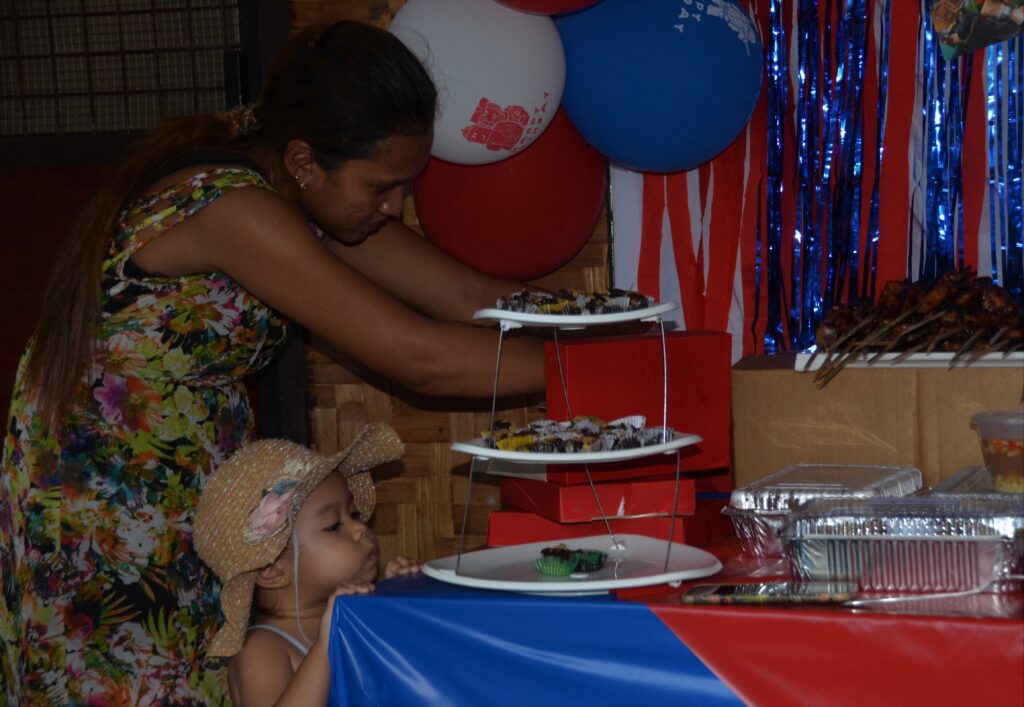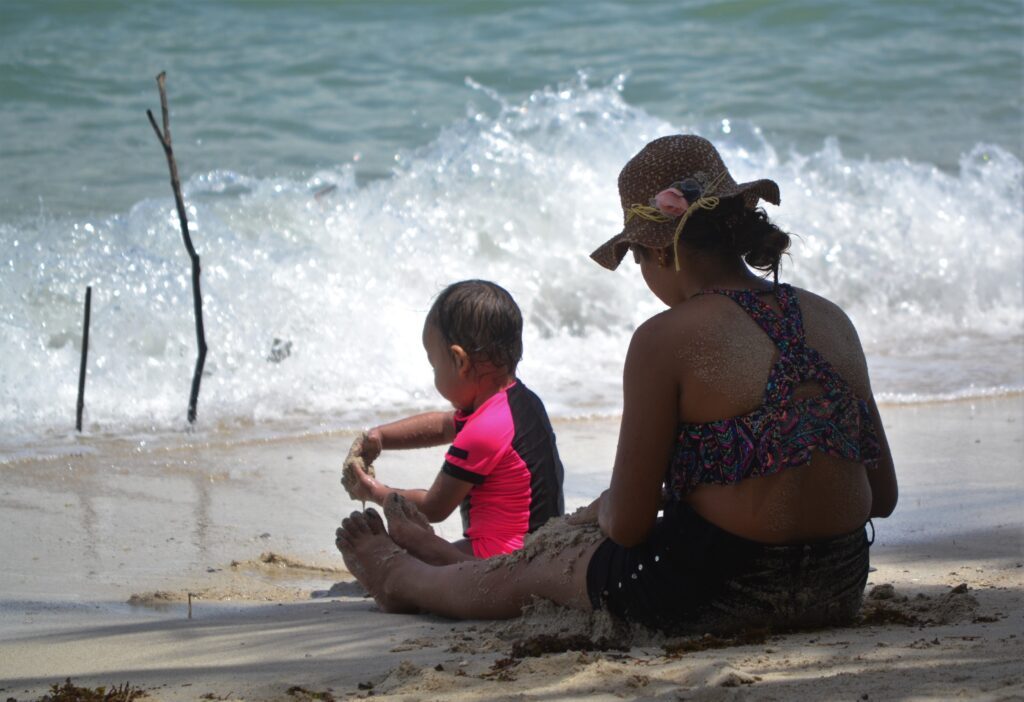Text and Photos by Henrylito D. Tacio
“The hand that rocks the cradle is the hand that rules the world.” — W.R. Wallace, 1865
***
The story below was shared by the famous French author Victor Hugo:
It was during the French Revolution in 1700. A mother and her two children were driven from their home. They wandered through the woods and fields for several days, living on roots and leaves. On the third morning, they hid in some bushes but two soldiers flushed them out. The officer saw they were starving, so he gave them a long loaf of French bread.
The mother grabbed like a famished animal, broke it into two pieces, and gave one to each child. One officer saw that and asked the other, “Isn’t that mother hungry?”
“No,” replied the captain, “it’s because she’s a mother.”
The anecdote reminded me the words of Shannon L. Alder. She said, “The greatest heroes in life are those that never give up on someone. They stick it out and make it work. They sacrifice things in their life, in order to help others grow. They give up what they want because someone needs it more. They work hard and overcome adversity. They fail for a moment, but get back up on their feet to show others they don’t have to stay down.
“They show their loved ones that love is not ‘proved’ by conformity. They teach others that having a voice is a sign of courage, and they will not stay silent to make people feel comfortable. They are fearless and will do whatever it takes to bring about the greatness in the ones they love because doing so brings them peace. Their name is — MOM.”
The famous American novelist Washington Irving said it right: “A mother is the truest friend we have, when trials heavy and sudden fall upon us; when adversity takes the place of prosperity; when friends desert us; when trouble thickens around us, still will she cling to us, and endeavor by her kind precepts and counsels to dissipate the clouds of darkness, and cause peace to return to our hearts.”
More often than not, the best place of a mother in the house is the kitchen. That seems to be her turf. Unknowingly, not all mothers love the place. Here’s a glimpse of a conversation between a mother and daughter, as penned by Kyung-Sook Shin in Please Look After Mom:
“Mom’s eyes held yours for a moment. ‘I don’t like or dislike the kitchen. I cooked because I had to. I had to stay in the kitchen so you could all eat and go to school. How could you only do what you like? There are things you have to do whether you like it or not.’
“Mom’s expression asked, ‘What kind of question is that?’ And then she murmured, ‘If you only do what you like, who’s going to do what you don’t like?’”

Mother and daughter 
Mother and daughter together
But mother knows best, so goes a saying. They know the secret of turning a rascal kid to do what she wants the child to do by praising the little one. It was the great English writer and painter, John Ruskin, who said that some of the greatest successes of the human race have been caused by love of praise.
“This is especially true in childhood,” Jack Denton Scott wrote in Reader’s Digest. “But all too often parents turn children away by pointing out only their faults and mistakes. A wise parent makes it a point to praise a child when he or she deserves it. It can work wonders.”
Scott proved this by the story of a woman he knew well. She completely transformed her son’s dislike of drying dishes by a word of praise to him. The story goes this way:
One night, the mother and son were doing the dishes together, much to his dislike, when suddenly he dropped a large meat platter. There was silence after the crash. Then his mother looked at him and said, “You know, Robert, of all the times you have dried dishes for me, this is the first time you have ever dropped one. I think you have set some kind of record.”
Fear left the boy’s face and he broke out into a smile. Forever after that, drying dishes was fun. How true was the statement of a psychologist who said: “Praise virtue and you will find few vices to condemn.”
Perhaps the only woman who never had a mother-in-law was Eve, the first woman. But she did become a mother herself — to Cain and Abel. In Flecks of Gold on a Path of Stone: Simple Truths for Profound Living, Craig D. Lounsbrough wrote: “Being a mother is not about ‘birthing a child into the world.’ Rather, it is about repeatedly ‘birthing into the child’ a steady sense of their inestimable worth, a prized understanding of their authentic self, a conviction that the impossible is largely the stuff of myth, and an utterly unwavering belief that cold actions of men never represent the warm heart of God. It is the relentless act of birthing these things into the innermost soul of a thirsty child that makes a woman a mother.”

To end this, allow me to quote the poem written by Theodore Morse and Howard Johnson:
M is for the million things she gave me
O means only that she’s growing old
T is for the tears were shed to save me
H is for her heart of purest gold
E is for her eyes, with live-light shining
R means right, and right she’ll always be
Put them together the spell “Mother,”
A word that means the world to me.

